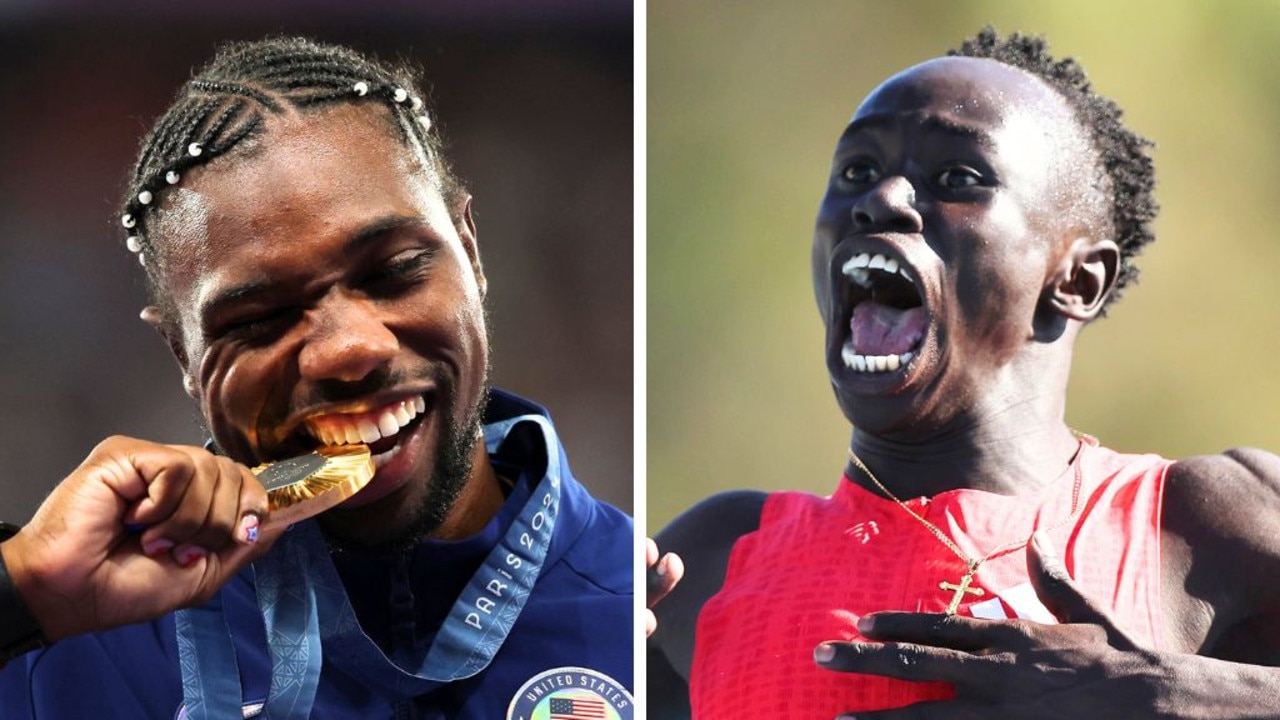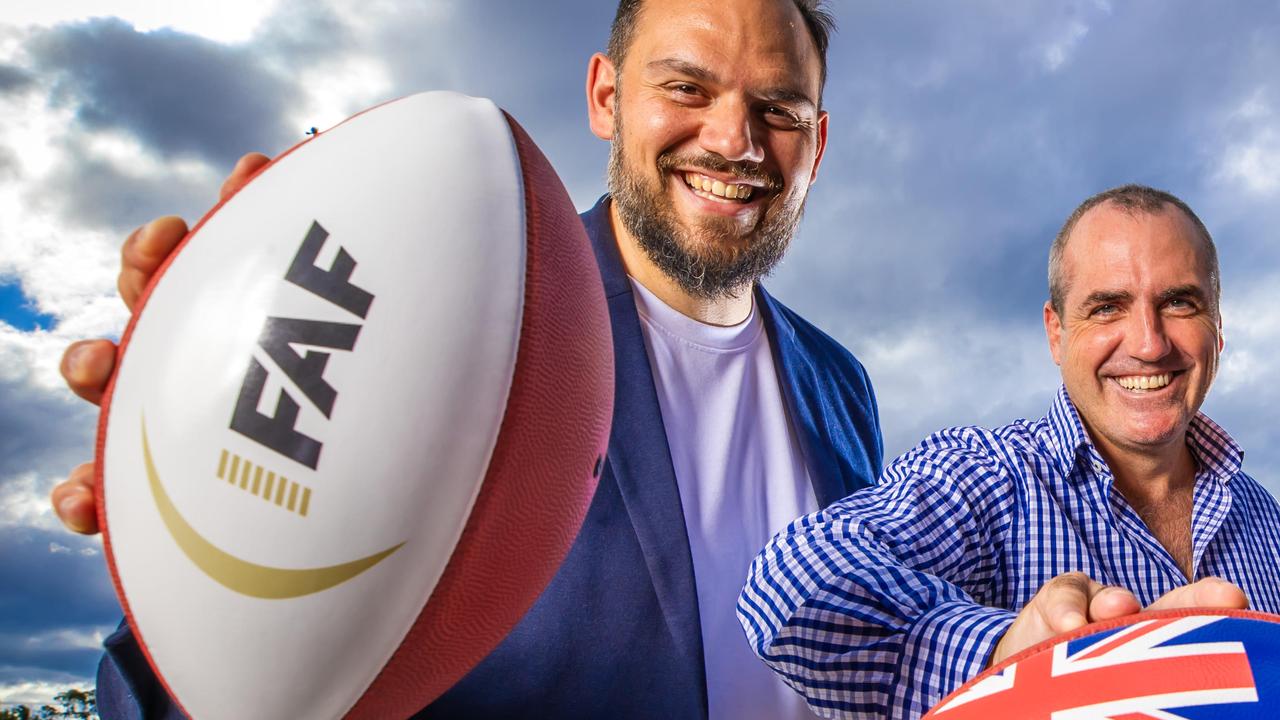Chloe Covell unconcerned by fractured fingers ahead of the Olympics
A freak training fall that left Chloe Covell with two fractured fingers on her right hand two weeks ago won’t derail her quest to become Australia’s youngest ever Olympic Games gold medallist.
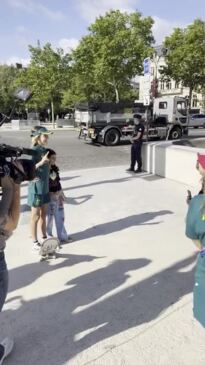
Olympics
Don't miss out on the headlines from Olympics. Followed categories will be added to My News.
A freak training fall that left Chloe Covell with two fractured fingers on her right hand two weeks ago won’t derail the rising skateboarding star’s quest to become Australia’s youngest ever Olympic Games gold medallist when she competes in Paris.
Covell suffered the injury at her Los Angeles pre-Games training camp - but while injuries in the weeks leading up to major events are often disastrous for most athletes the 14-year-old Olympic rookie insists there is no impact to her competition.
“With street skating you don’t grab your board so it’s pretty chill,” Covell said.
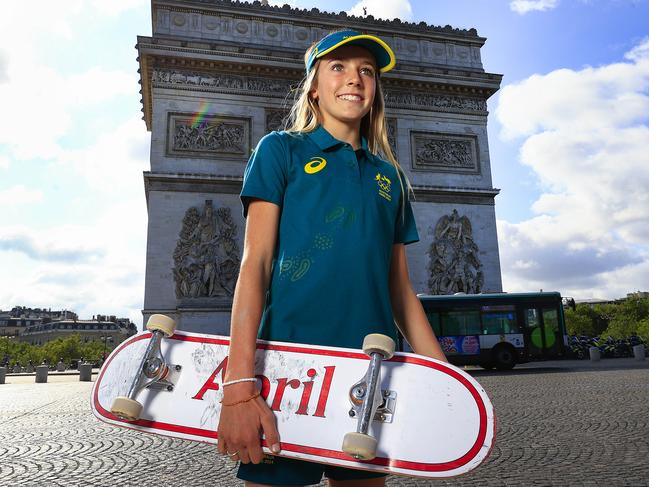
“Yeah about two weeks ago I fractured both of my fingers when I was training in LA.
“It was just a freak incident, I just slipped out and they (ring and little finger) fully bent back.
“Big injuries for me are like my wrists, I have little bones and I guess, my wrists, the bones chip very easily and, my ankles, they always get chipped quite a bit and I’ve had a couple of stitches and stuff.”
Covell looms as one of the stories of the Games. At 14 years and five months, she could replace 1956 Olympian Sandra Morgan as Australia’s youngest Olympic gold medallist in history if she can salute at the Place de La Concorde.
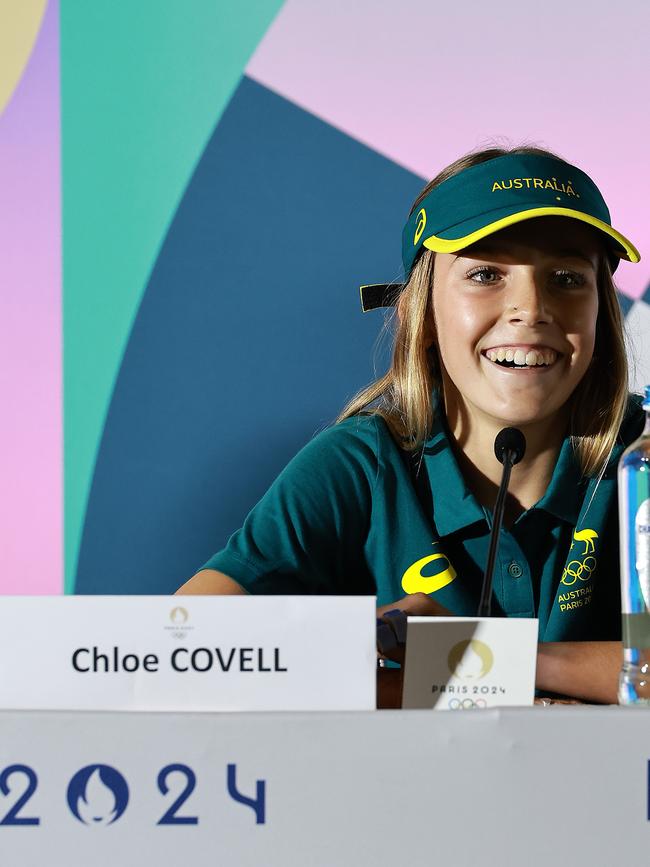
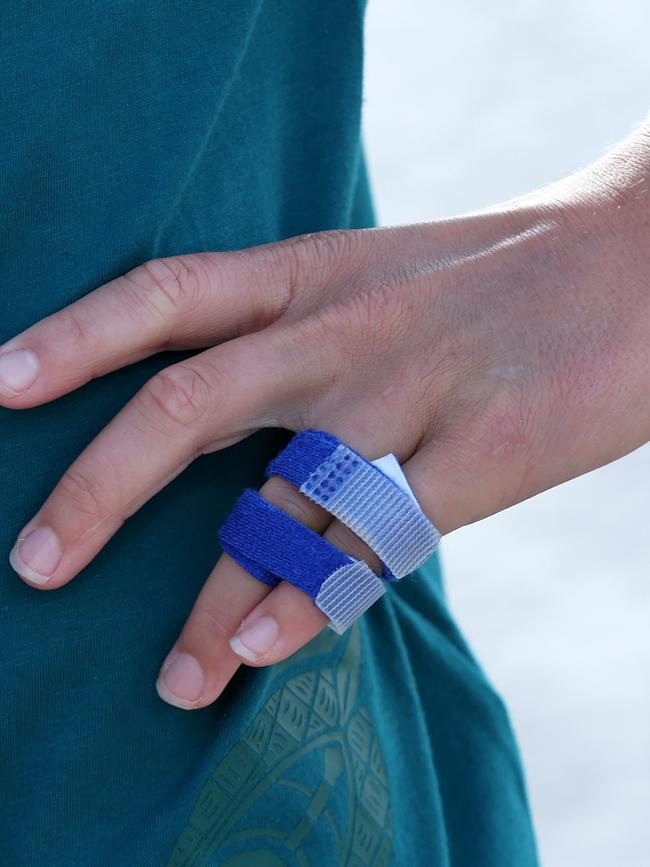
While Covell oozed calmness as she skated her way out of the Main Press Centre and up towards the Arc de Triomphe where she posed for photos with young fans, she suspects the nerves will soon begin to take hold.
“I’m definitely a little nervous because it is the biggest stage. The biggest competition and there are just famous people walking around everywhere,” she said.
The Australian skaters got their first taste of the Urban Park on Monday, having previously only had the opportunity to visualise their Olympic runs via 3D rendered images of the street park.
The skaters each get four two-hour sessions on the course in the coming days to rehearse their Olympic runs, figure out what tricks and lines they will take to score the most points.
“You definitely need to figure out (your run) when I see the course, see the size and check it out,” she said.
“You can’t just stick with one run. I like to kind of move around because if you need a bigger run you have to add stuff in or take stuff out.”



